Can Dogs Eat Cheese?
Ever had one of those fun dinner parties where everyone’s buzzing, the wine’s freely flowing, and laughter’s bouncing off the walls?
And there’s your furry pal right there, giving you those ‘don’t forget me, human’ eyes! You might think, “So, can Fido join the cheesy action?” Well, it’s not entirely a bad idea!
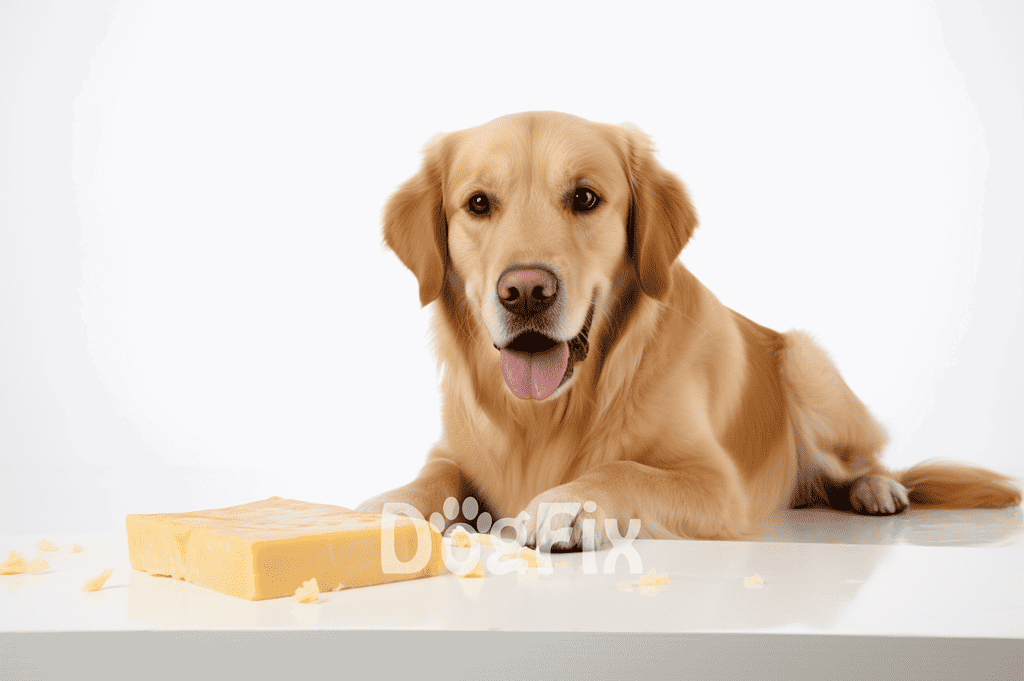
But hey, feeding dogs cheese isn’t as simple as steak, kibbles, or some crusts from your pizza. Like us, they need their protein, carbs, good fats, vitamins, and minerals. Cheese can slide into this mix, but remember, what’s tasty and healthy to us might not be for our fur buddies.
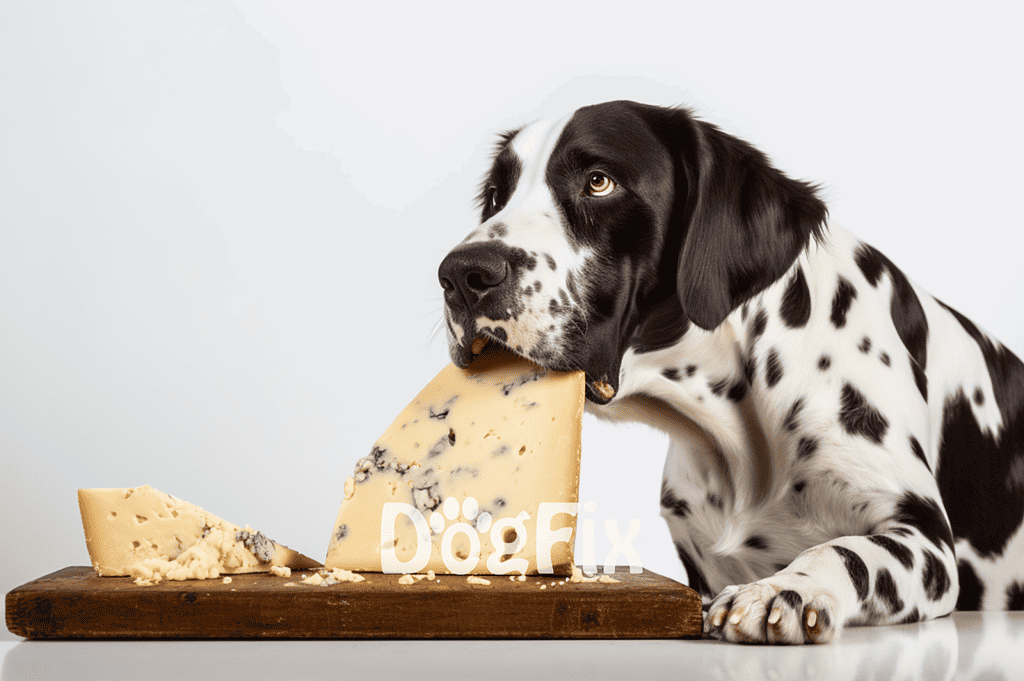
Who knows, Fido could even have his own “oh no, not dairy!” moment. So let’s get into the good, the bad, and the cheesy about feeding your dog cheese!
Understanding Canine Dietary Needs
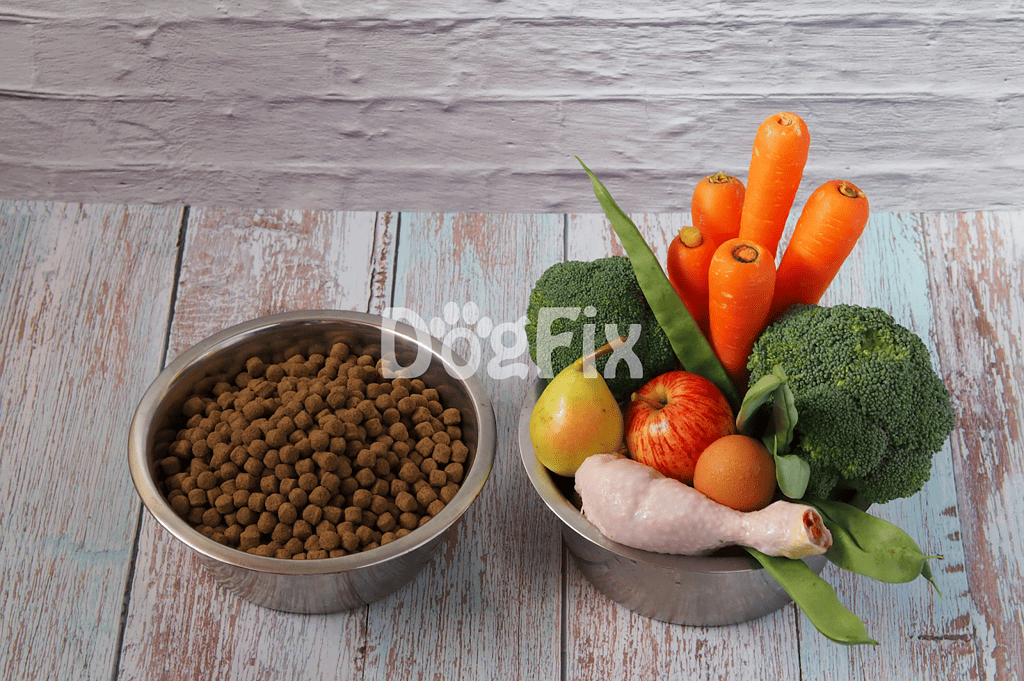
Feeding dogs may seem as tricky as rocket science without the right info. But they just need a mix of meaty stuff, protein, calcium, and B-vitamins. However, as dog lovers, we all want to get it ‘Spot’-on!
Protein: All About Those Gains
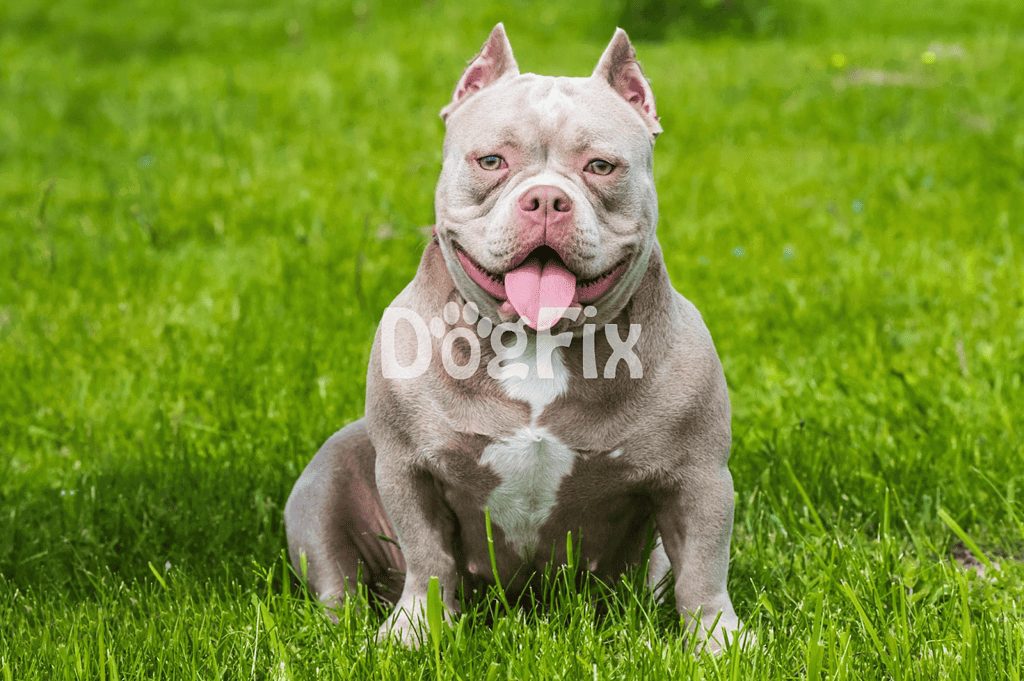
Protein for dogs is like their everyday yoga session, keeping them strong and boosting their immune system. They need at least 18% of their diet to be protein, though active dogs or growing pups might need more.
Calcium: Keeping it Strong and Steady
Let’s yap about calcium.
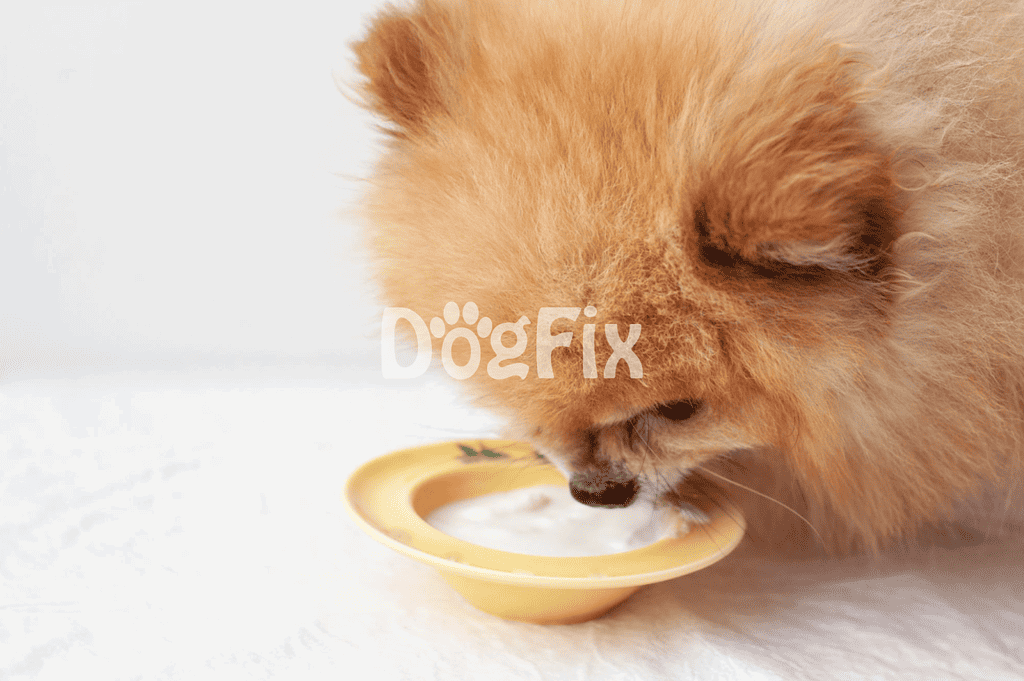
Just like we drink milk for tough bones and teeth, our furry friends need it, too! It helps muscles work and nerves do their thing. Just 0.5% calcium in their diet is enough.
Fat: Fuel to the Furry
Onto fat, and no – it’s not the enemy here!
Imagine it like the oil that keeps their coat glossy, skin healthy, and energy levels soaring. It also helps absorb fat-soluble vitamins. About 5% fat in their diet is about right.
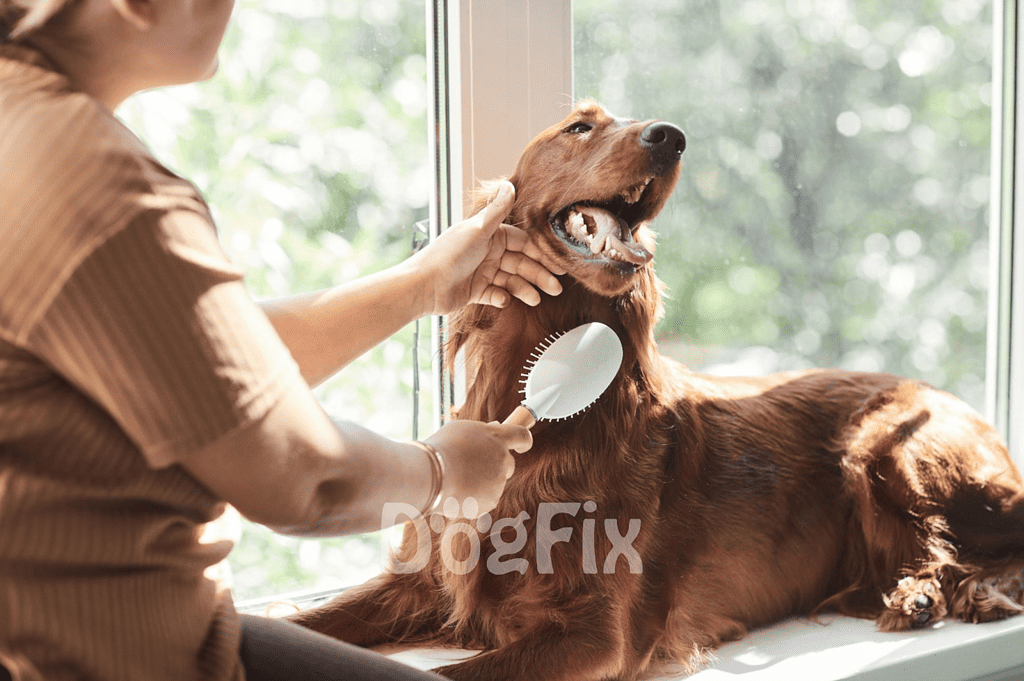
Vitamins, Fatty Acids & Minerals: A Dog’s Best Health Buddies
Vitamins are a real game-changer for dogs, helping fend off diseases. B-complex amps up their energy, while vitamin A keeps eyesight and immunity on track. Oh, and don’t skip essential fatty acids. They’re like brain fuel and give dogs that shiny-coat look.
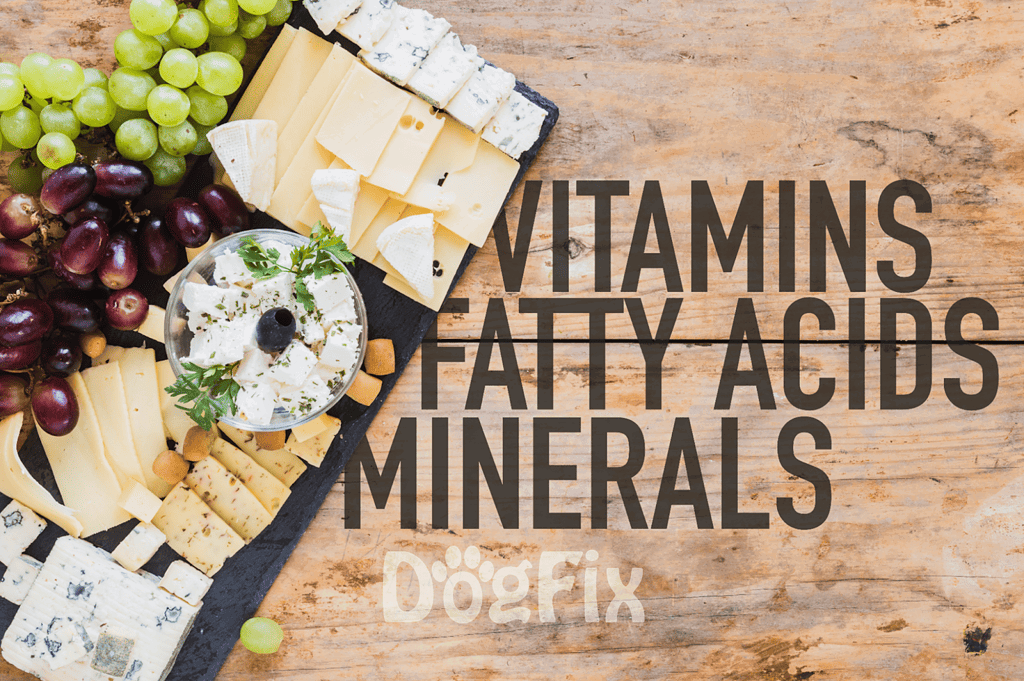
And meet minerals, these are the bone health bouncers like calcium and phosphorus, with iron managing oxygen transport.
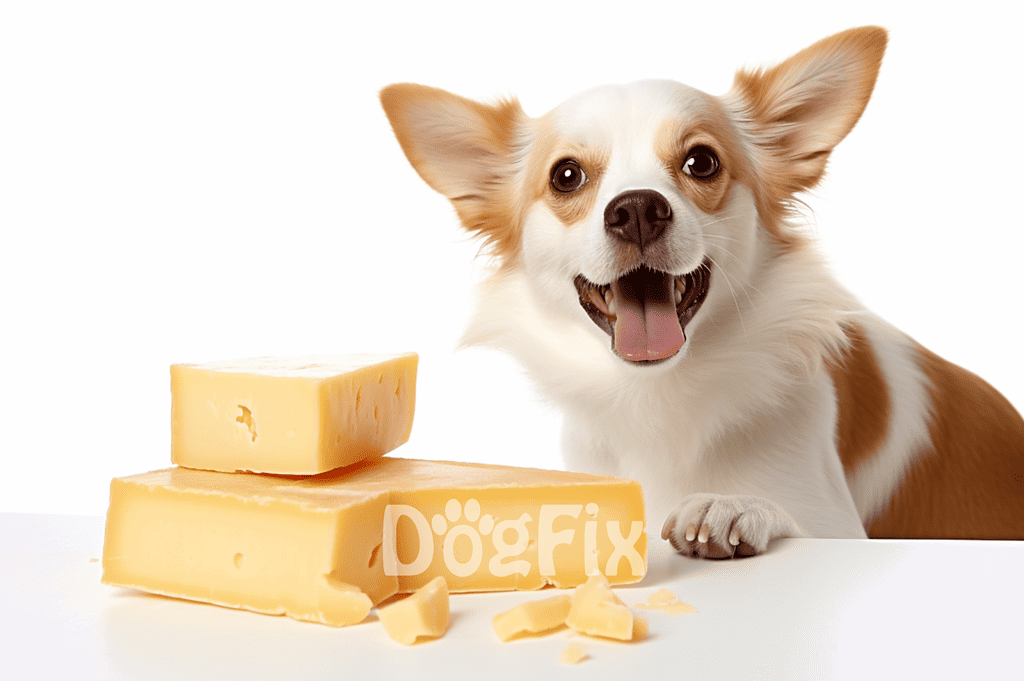
Dogs have a unique tummy setup for breaking down food – especially animal proteins – and for absorbing goodness. It’s more compact than ours, so they need easily digestible, nutrient-rich food.
Just remember, when in doubt, your vet’s a quick call away. They can help tailor your dog’s diet to their specific needs.
Cheese: Nutritional Overview
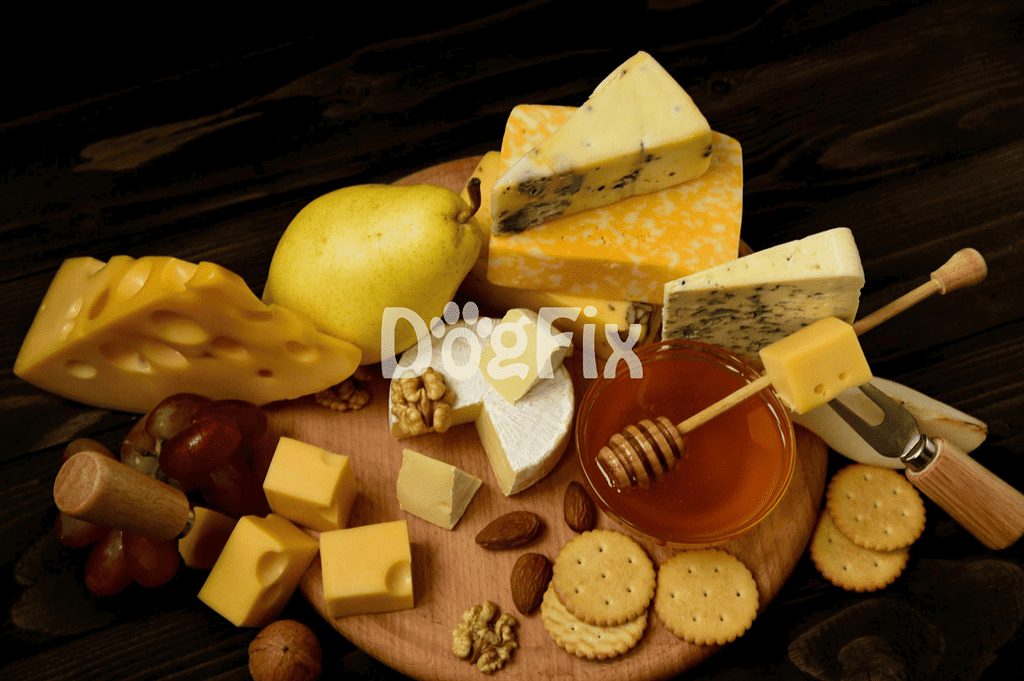
Cheese is a beloved guest at all occasions, from brunch to late-night gatherings. And not just by us humans; our dogs love it too! Loaded with essentials like calcium, protein, and vitamins, it’s a fabulous treat for Fido.
Calcium, Protein, and Dogs
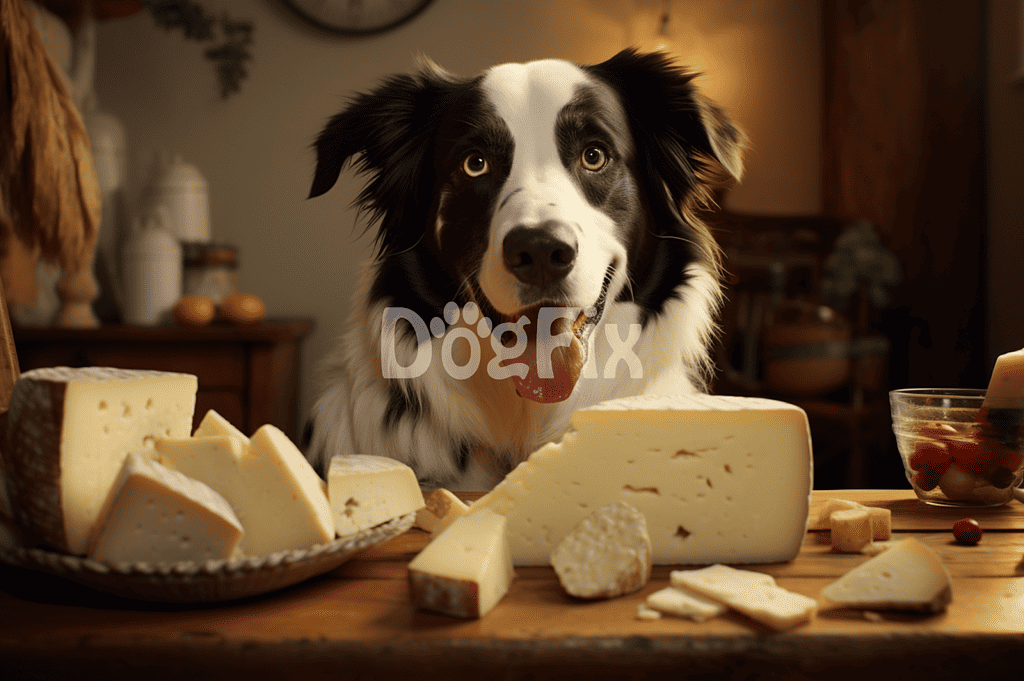
As much as kids need their daily dose of milk for robust bones and teeth, dogs, too, benefit from calcium, and cheese has got it in spades. In the doggie world, proteins are like their personal trainer, rendering kick-butt strength to their tissues.
Fats and Sodium
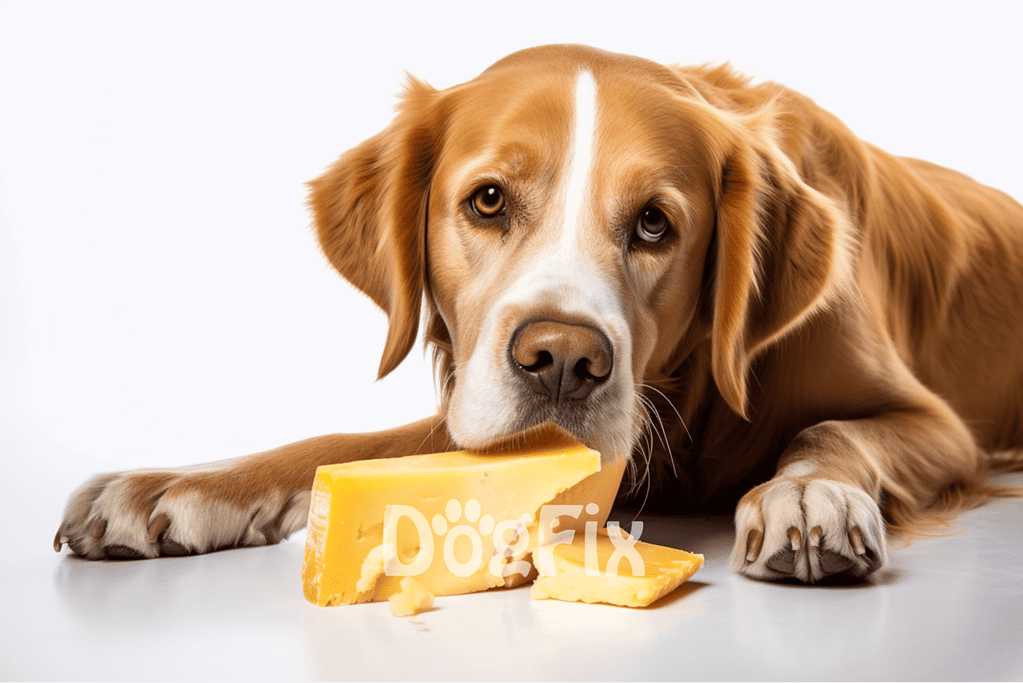
Drawing cheese boundaries is crucial. The fat in cheese, while energy-boosting, can be a party pooper if overdone. Plus, some cheeses pack lots of salt, a potential villain in your pup’s tale. The hack? Low-sodium cheese!
The Vitamins in a Cheese Slice
Cheese isn’t just about protein and calcium, it’s got its vitamin sidekicks, maintaining healthy skin, eyes, and muscles in dogs. But hey, it’s not a miracle pill, it has some vitamins, but not a ton.
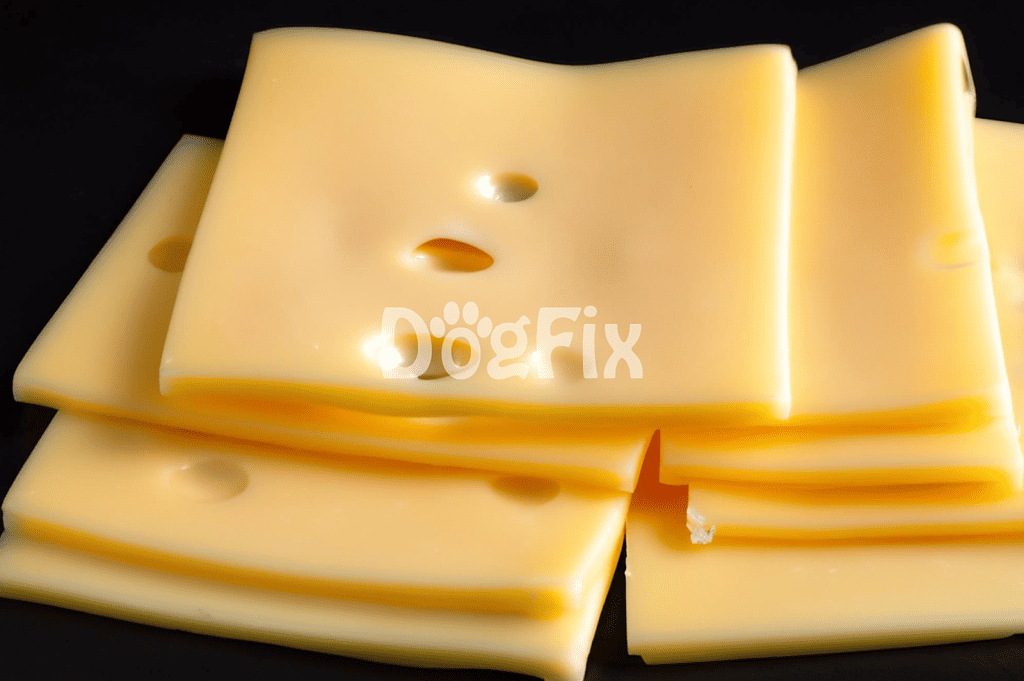
Cheese can be a treat for dogs, like a cheat day in a diet plan. Just stick to healthier options – the low-fat, low-sodium kind – and watch those portions. After all, a joyous dog means a joyous you!
Enjoying this read?
We publish this content for free to generate interest in our Premium members' area. By subscribing, you can ask the writer any questions related to pet care and this article, get access to 100+ Premium Pet Care Guides and go Ad-Free with DogFix Premium for $2.99.
Potential Risks Associated with Cheese
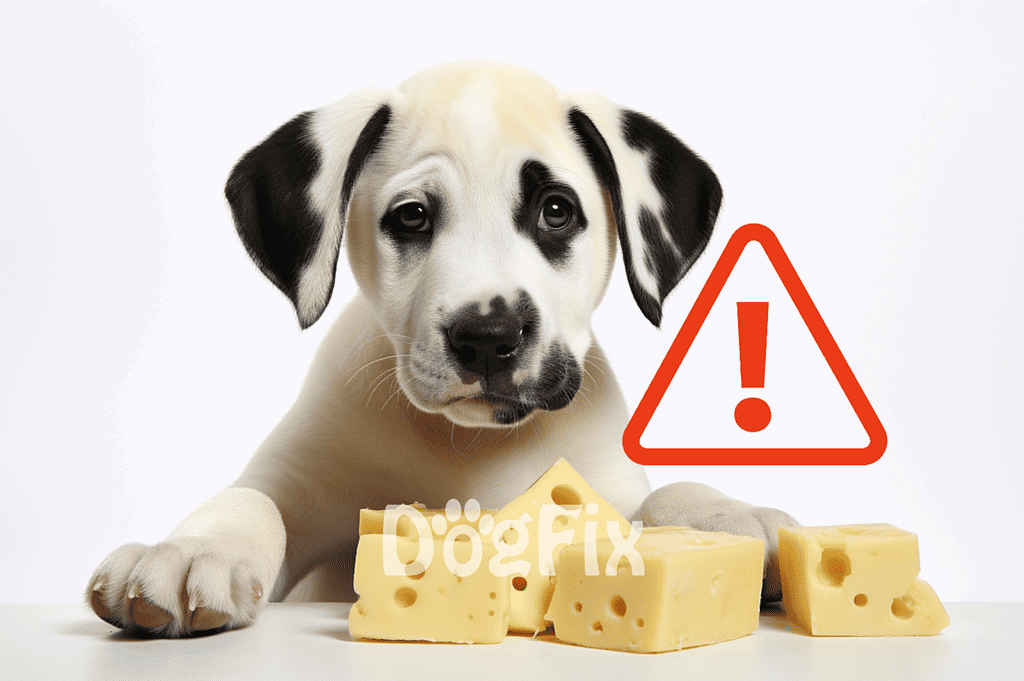
As much as we’d love cheese to be the perfect reward for our furry pals, it has a catch. Let’s explore why we need caution before treating our fur friends to cheesy delights.
Obesity and Weight Gain
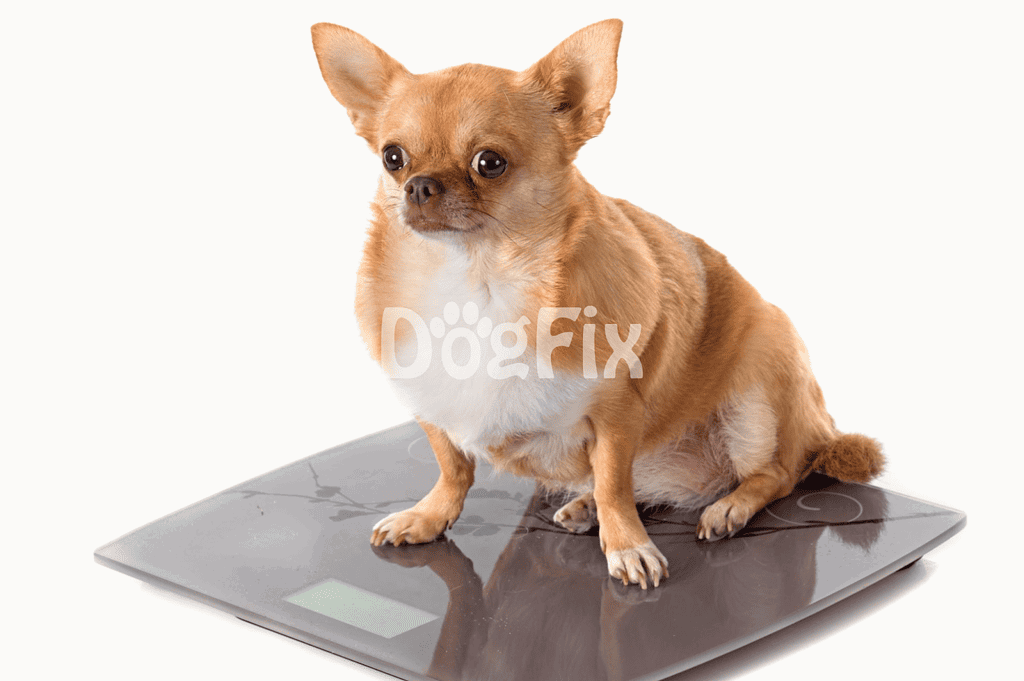
Imagine a couch potato dog or one a few kibbles heavier. Bring in cheese and it’s a calorific storm, ready to turn your fur buddy into a cute little roly-poly. And we definitely don’t want that!
Lactose Intolerance
Sometimes, dogs and dairy don’t mix; think cats and water. Some dogs are lactose intolerant – unable to digest it, ending up with an upset stomach.

Not a great scenario, especially for your carpet! Always start with small cheese treats and watch Fido’s reaction.
Added Ingredients
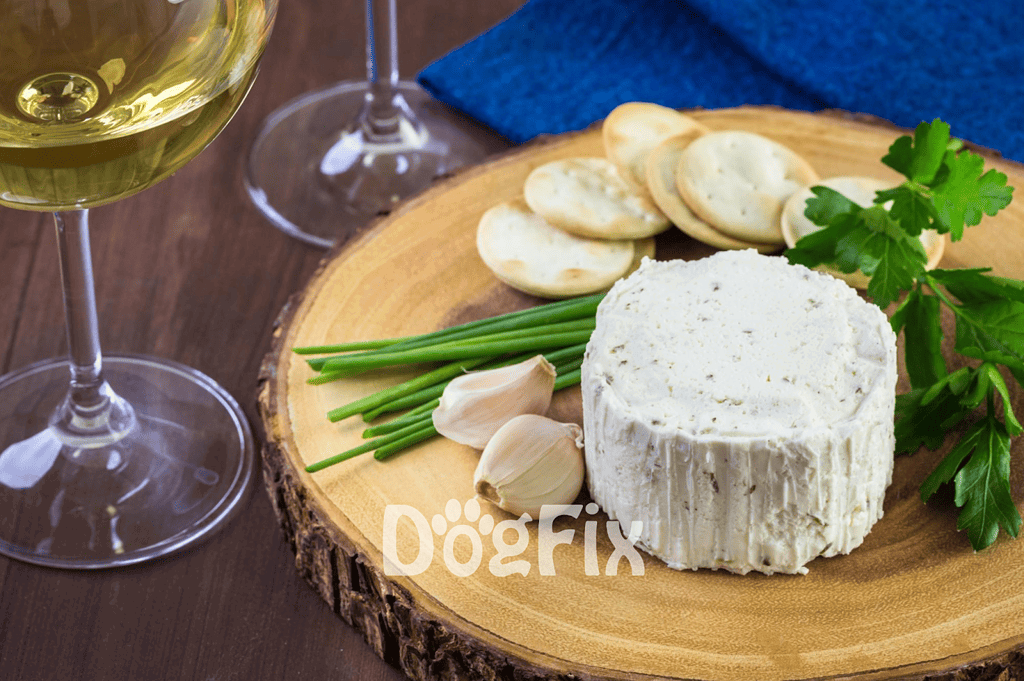
Beware of cheeses with hidden nasties like garlic, onion, or chives.
These seemingly innocent cheese additives can harm dogs.
And what about hard cheeses like cheddar or parmesan? They can be a choking hazard if not rightly sized for Fido.
Pancreatitis and Pups
Pancreatitis in dogs is like a big, bold signboard with flashing lights saying ‘No Cheese Here, Please!’. This condition, like a fire of inflammation in the pancreas, can worsen notably with a high-fat diet.
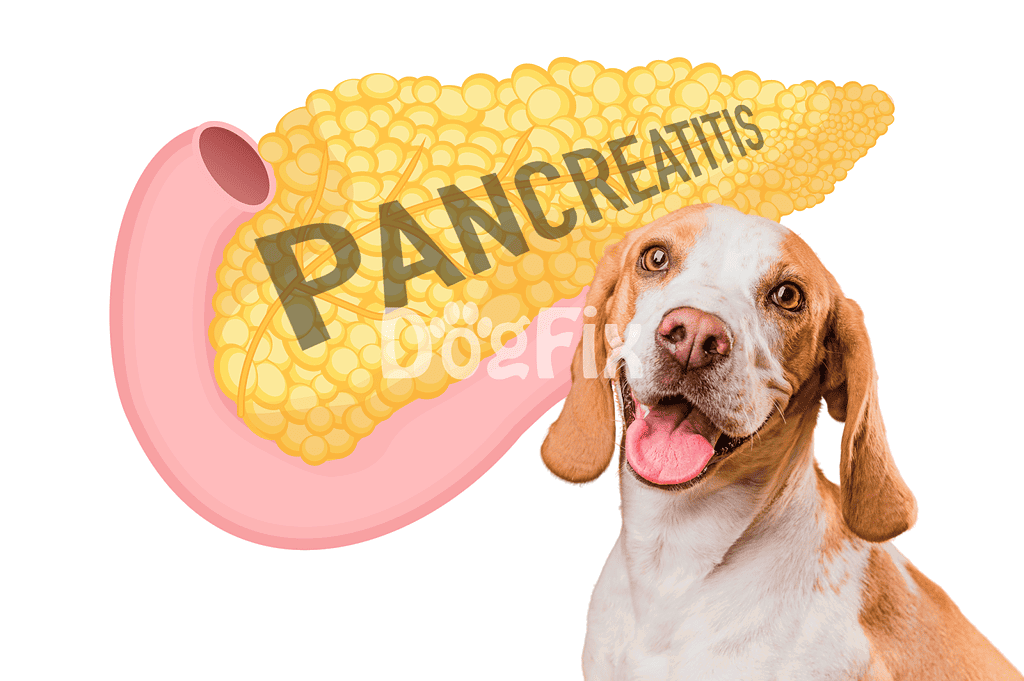
In a dog’s world, cheese is THE enticing guilty pleasure reward. However, it’s imperative to remember, moderation is vital and each doggie’s reaction needs close monitoring.
Cheese Hunt – The Dog-Friendly Guide!
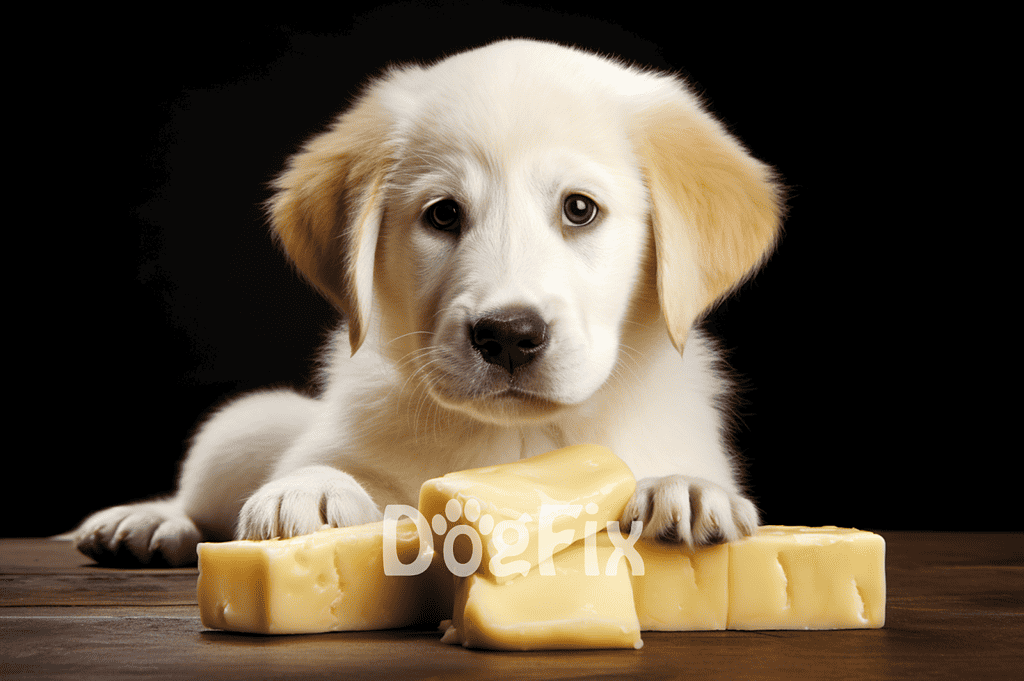
Looking to power up your dog’s treat game with cheese? Equip yourself with this key – know your cheeses! Choose ones that are dog-safe, low in lactose and fat, basically the types that’ll make your furry buddy wag their tail like crazy!
Kick Off with Cottage Cheese
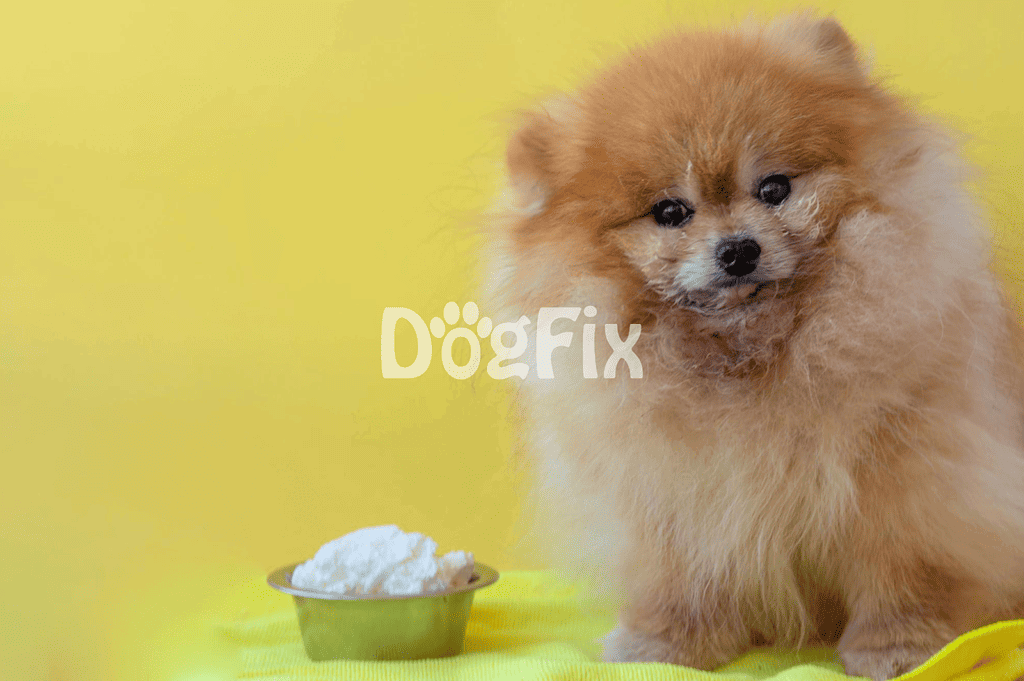
First up – Cottage cheese.
This protein and calcium-rich buddy is perfect for dogs and doesn’t cause them an icky belly, thanks to its low-lactose content.
Say Hello to Low-Fat Cheeses
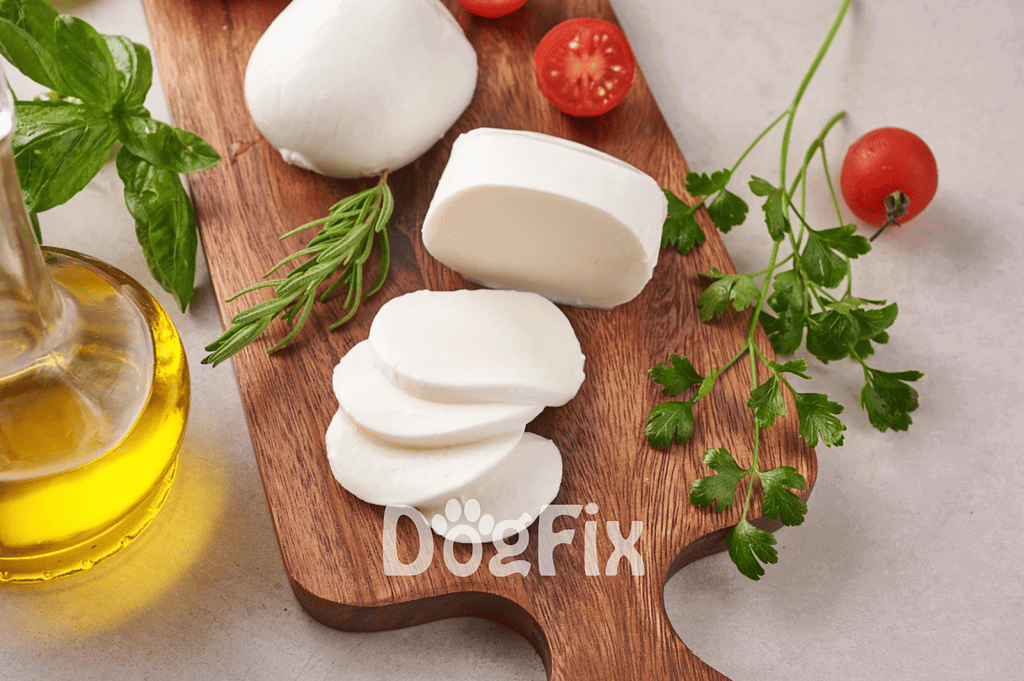
Meet the lean type- mozzarella, goat cheese, and soft goat cheese. They are healthier options for dogs than those with higher fat content. They are also less likely to cause digestive issues.
Cheddar and Swiss – Small Doses Pack a Punch!
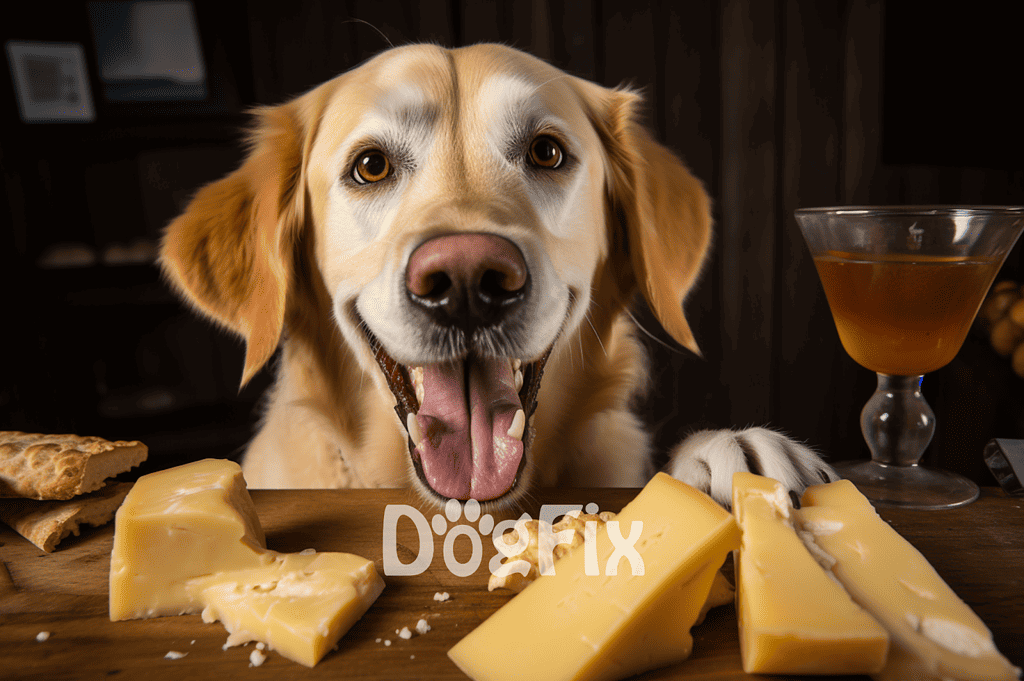
Small cheddar and Swiss cheese bits, like scrumptious doggie bite-sized pieces, are safe and oh-so-tantalizing. They’re packing protein and calcium!
Roll Out the Parmesan
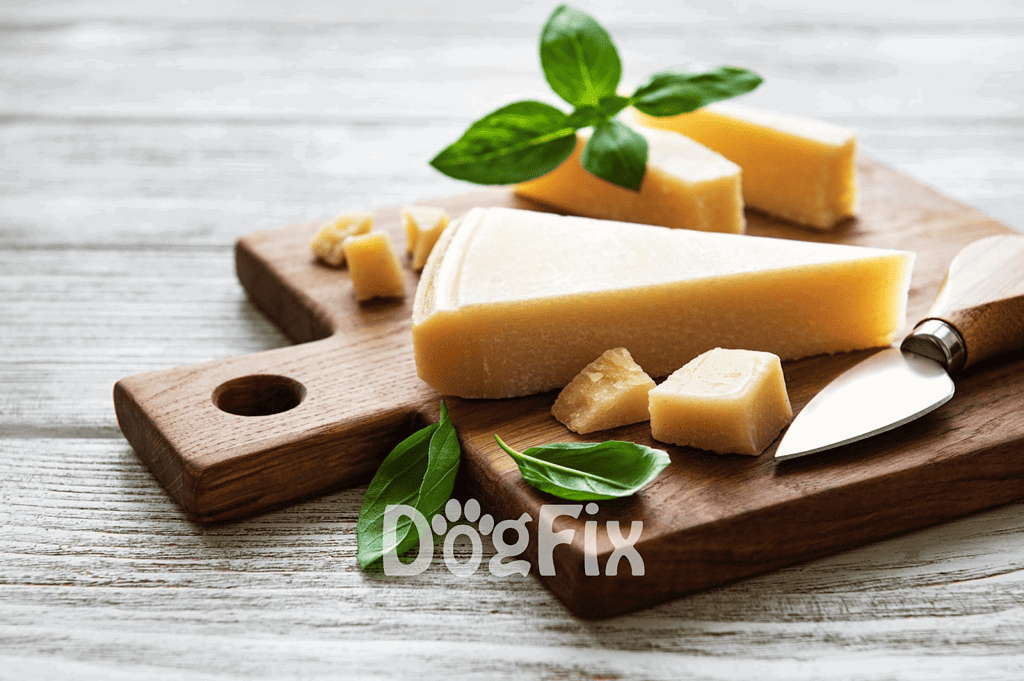
Parmesan cheese is safe for dogs to eat in moderation. It’s also a good source of protein and calcium.
Feta Cheese – No Onions, Please!
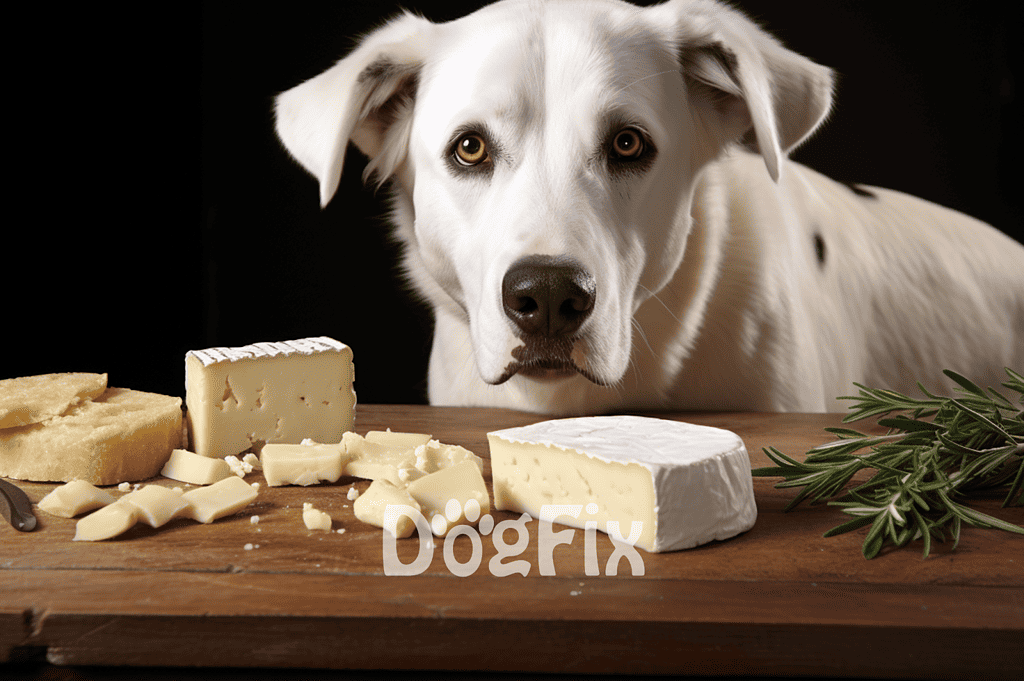
Feta is suitable for dogs but beware of any hidden garlic or onion. They’re doggie kryptonite!
Creamy Delight – Cream Cheese
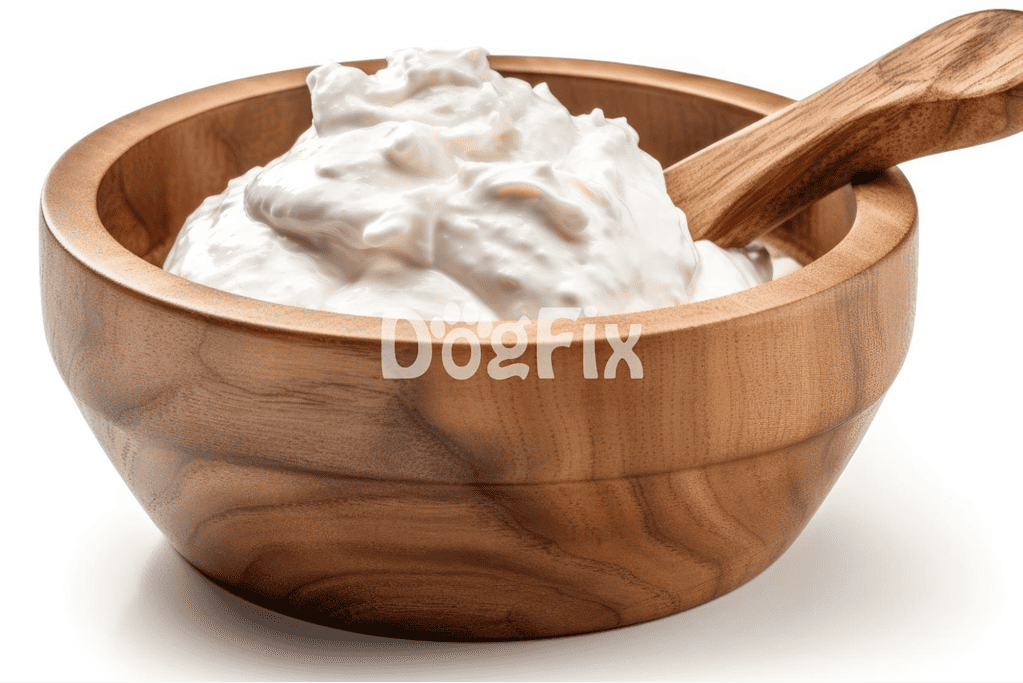
Next up is cream cheese. Opt for low-fat versions and avoid any herbs or veggies your dog might find hard to digest.
Ricotta – A Smooth Choice
Lastly, ricotta. This creamy delight is cool for dogs to munch on, again in moderation. Peak protein, perfect calcium, and your dog’s new favorite!
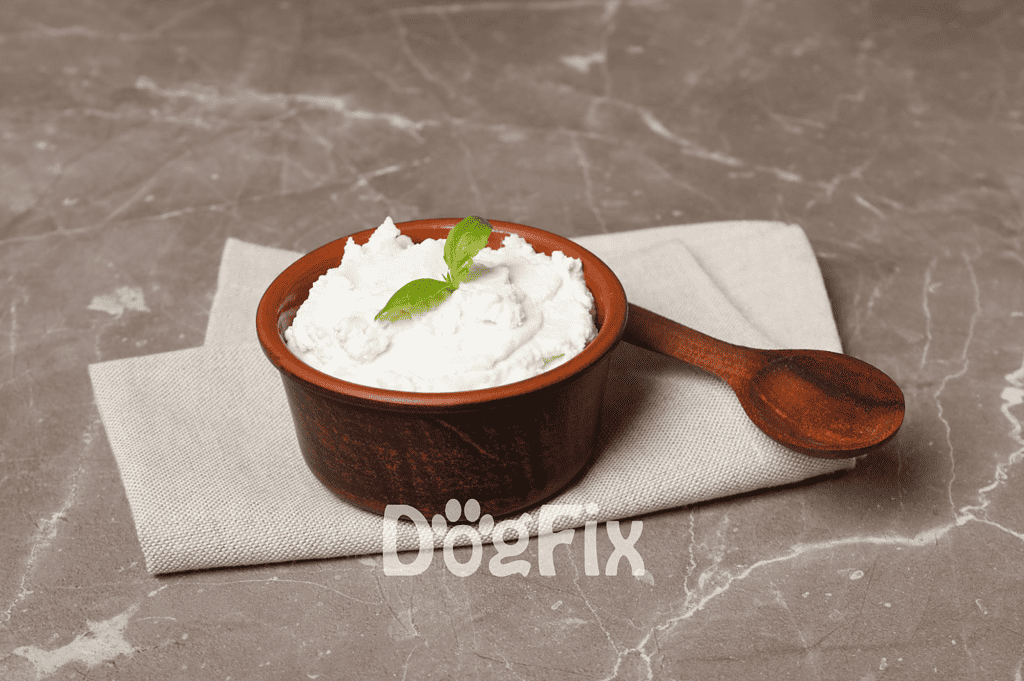
Just remember the golden rule: any new food (that includes our star – cheese) shouldn’t make up more than 10% of your dog’s daily calorie intake.
Unsafe Cheese Options for Dogs
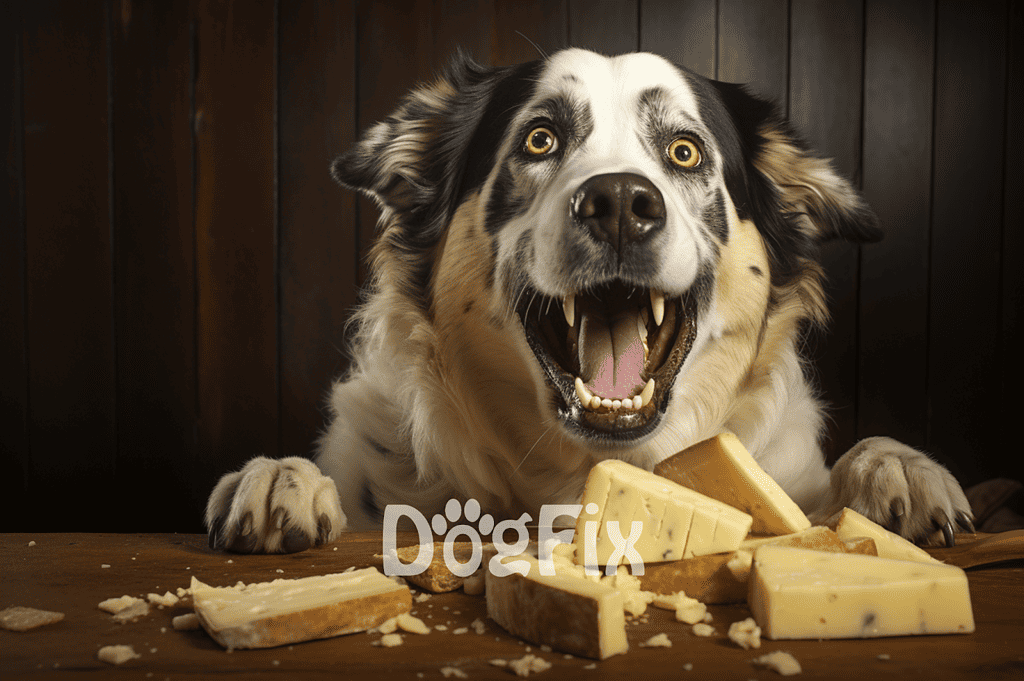
Although cheese may be a hit with your furry pal, not all types pass the snack test. Some may harbor nasty side effects, from tummy upsets to scarier issues. So it’s a good idea to know which cheeses to steer clear of!
A Big No-No to Blue Cheese
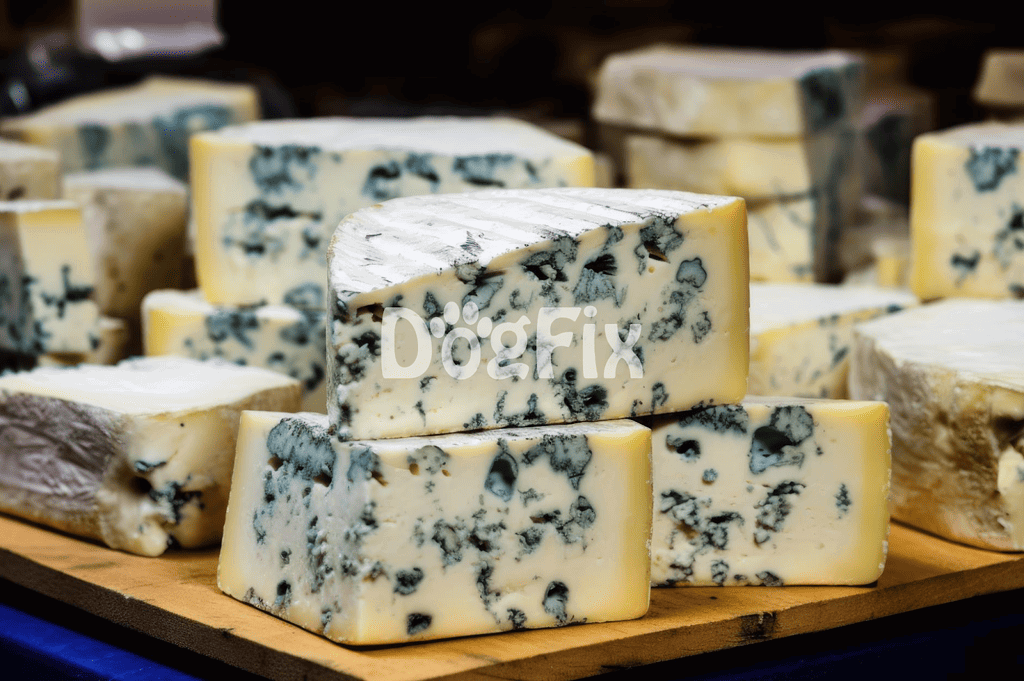
Blue cheese contains roquefortine C, which can cause vomiting and diarrhea in dogs. In severe cases, it can also lead to tremors and seizures.
Sneaky Additions – Garlic, Onion, and Chives
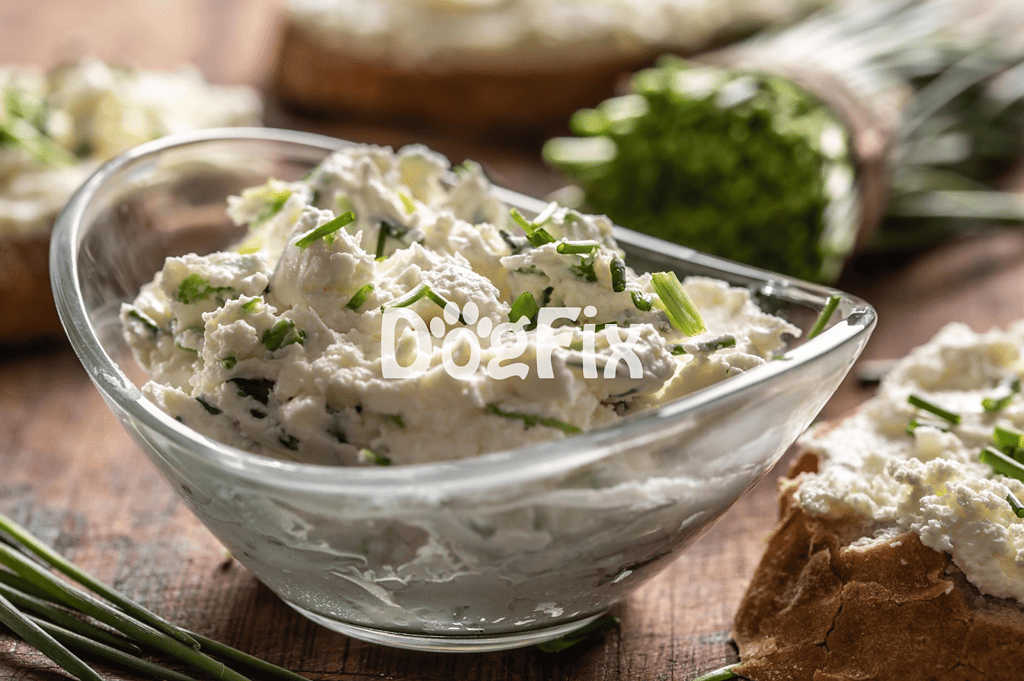
Cheese with garlic, onion, or chives are like a risky ride on a rollercoaster for your dog’s red blood cells. One bite can lead them down the anemia route with signs like lethargy, weakness, and pale gums.
Aged Cheese
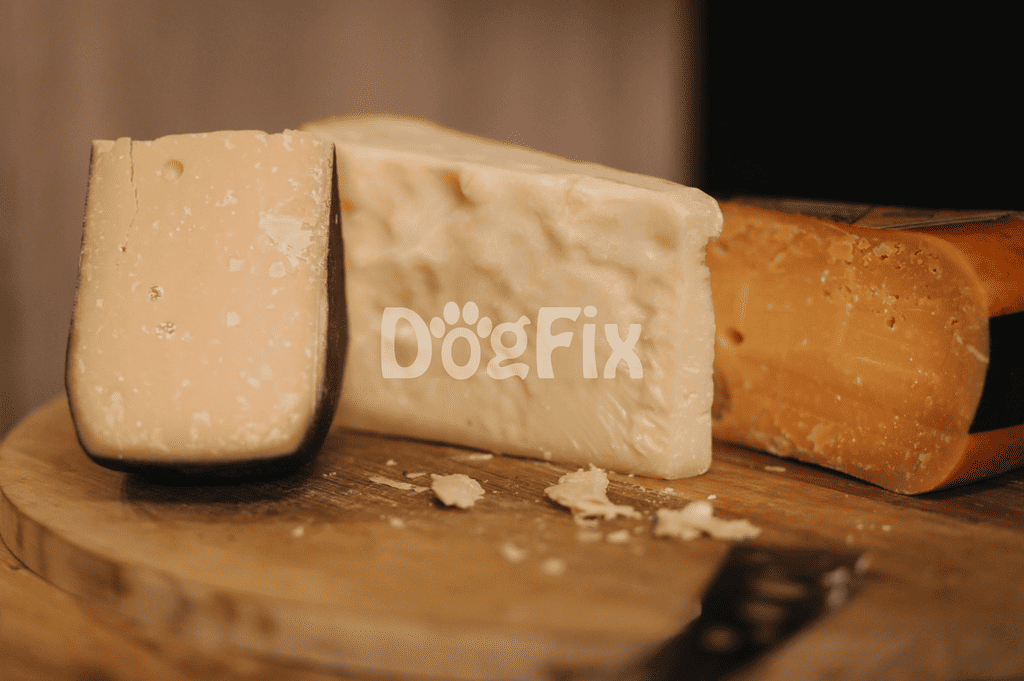
While classy, aged cheeses like Parmesan or cheddar pack a punch of tyramine – bad news if your dog has heart issues! It’s a high-blood-pressure ticking bomb for dogs. So, if your pup has any heart conditions, steer clear of these cheeses.
Moldy Cheese
Aged, moldy cheeses like Roquefort or Gorgonzola can stir up trouble. Besides upsetting your dog’s stomach, they could cause tremors or seizures in extreme cases.
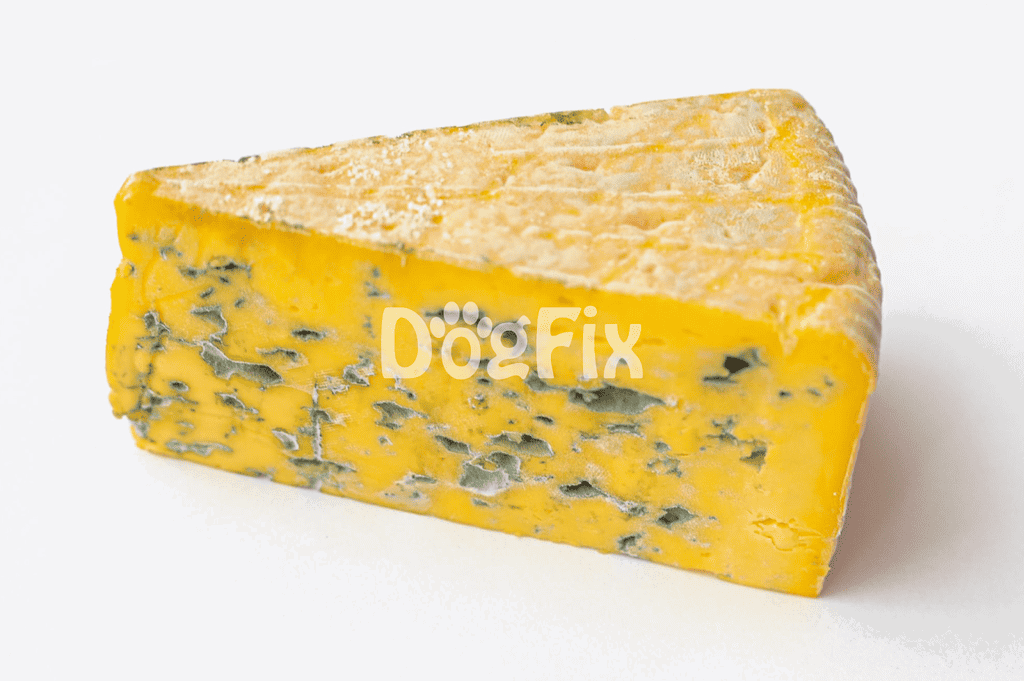
While a nibble might seem harmless, it’s best to keep these cheeses away from your pup. And if they sneak a bite, reach out to your vet ASAP.
Cheese Alternatives for Dogs
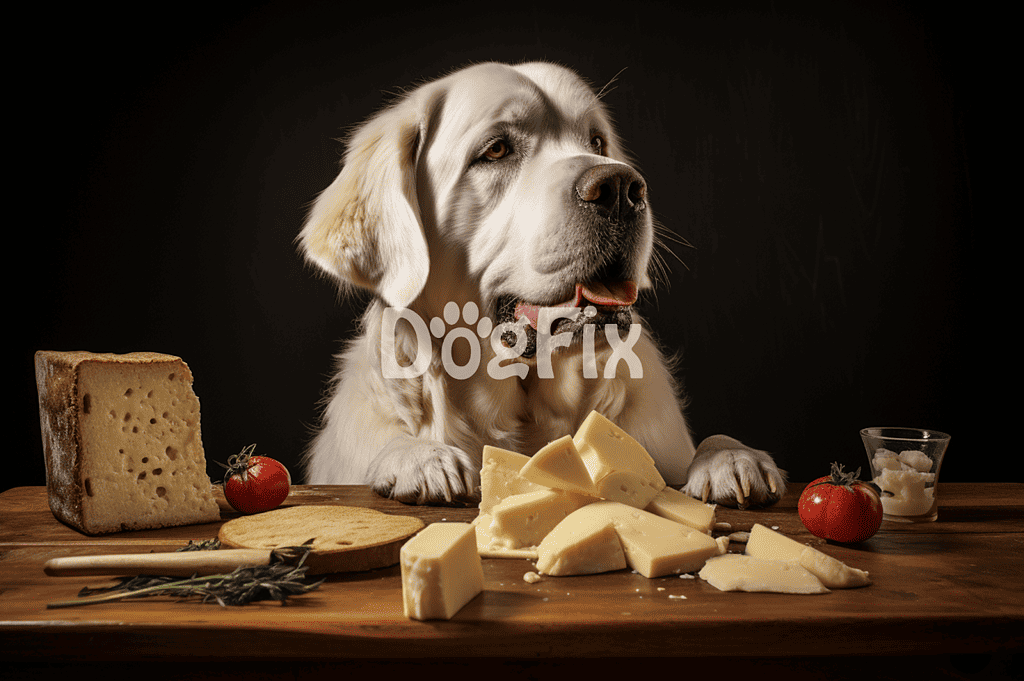
Cheese can make your dog wildly happy, but what if they’re lactose-intolerant or can’t take the cheesy love?
Worry not, dog parents! We’ve got a list of great alternatives to keep both you and your furry buddy grinning!
Yogurt
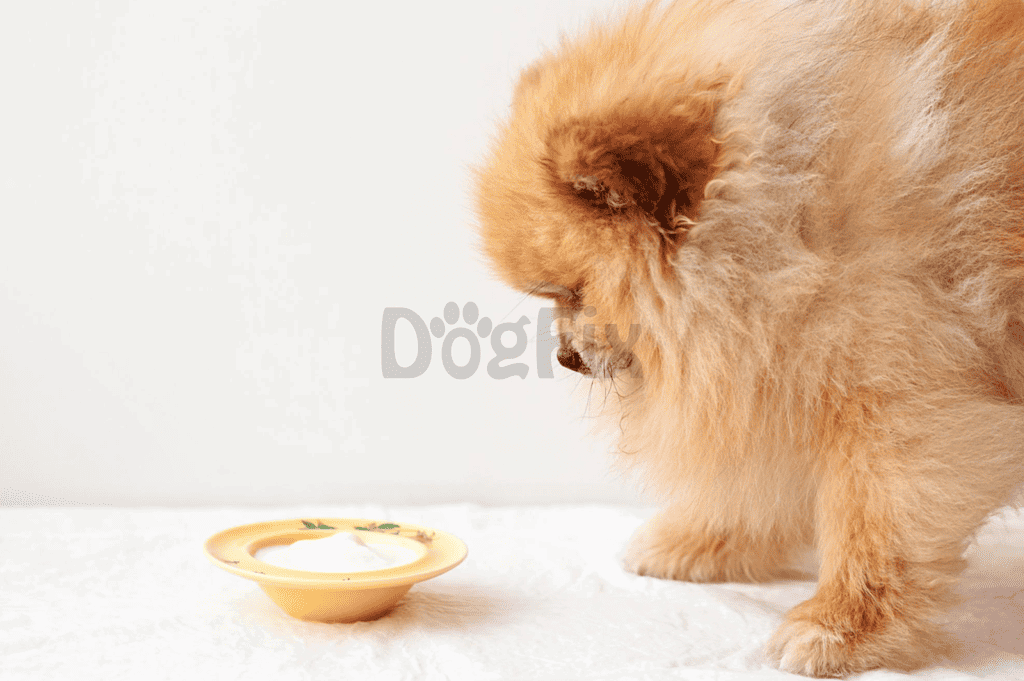
Here’s a creamy delight, perfect as a cheese alternative. It not only helps your dog’s digestive system but also packs a punch with calcium and protein. Go for the plain, unsweetened type to avoid any harm from added sugars and flavorings.
Our food shelves can be a treat treasure trove for your dog. Healthy items like cooked chicken, soft-boiled eggs, peanut butter, brown rice, and oatmeal are fantastic. Just make sure they’re low on salt and sugar.
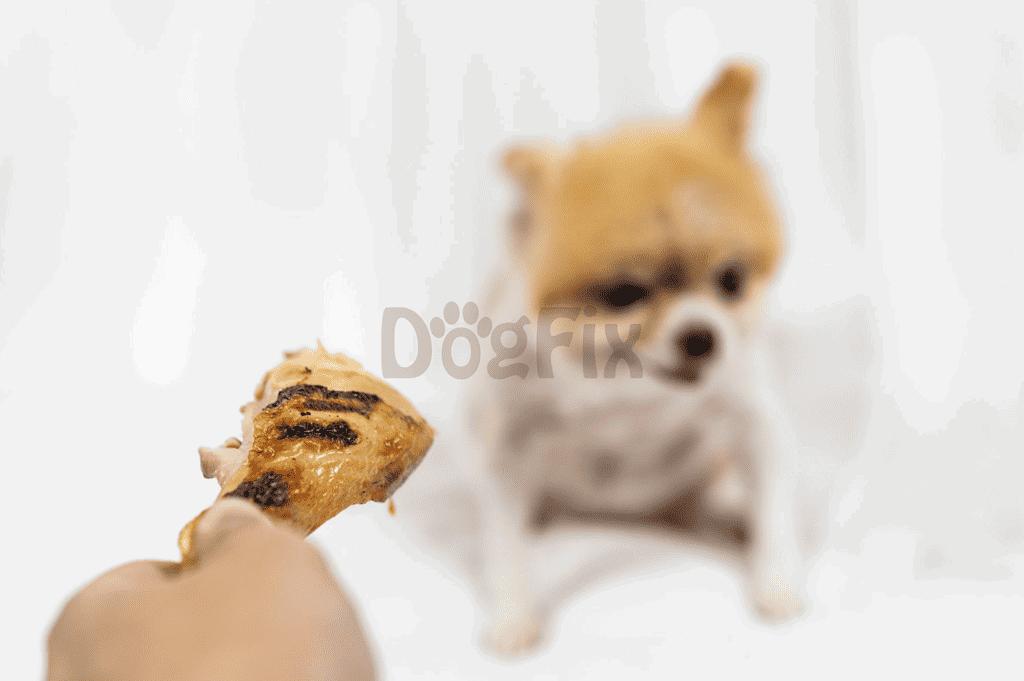
Dogs do love cheese, but when it’s a no-go, plenty of dog-friendly, nutritious snacks can save the day. You can treat your pooch without compromising on health.
So sit back, relax, and let the tail-wagging begin!
Furry FAQs – Get CheeseWise with Your Dog!
Dog + Cheese – A Good Match?
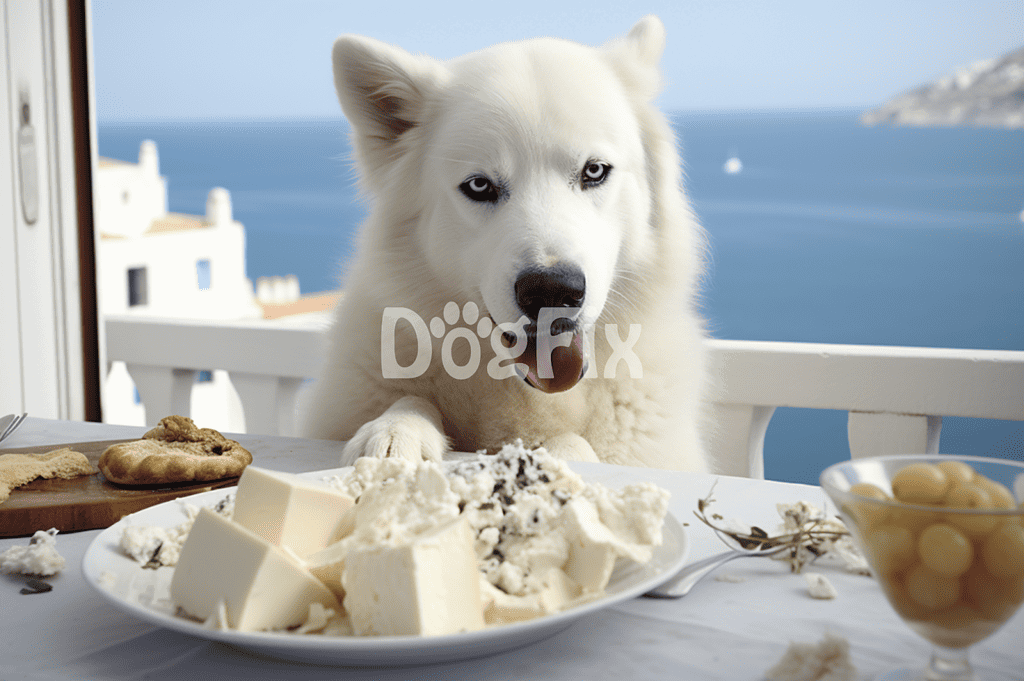
In a nutshell, yes! Dogs can enjoy a lovely chunk of cheese without it wreaking havoc on their tummies, but don’t go overboard! The trick is paying attention to how they react to its dairy delight.
Safe Cheesy Bites for My Four-Legged Pal?
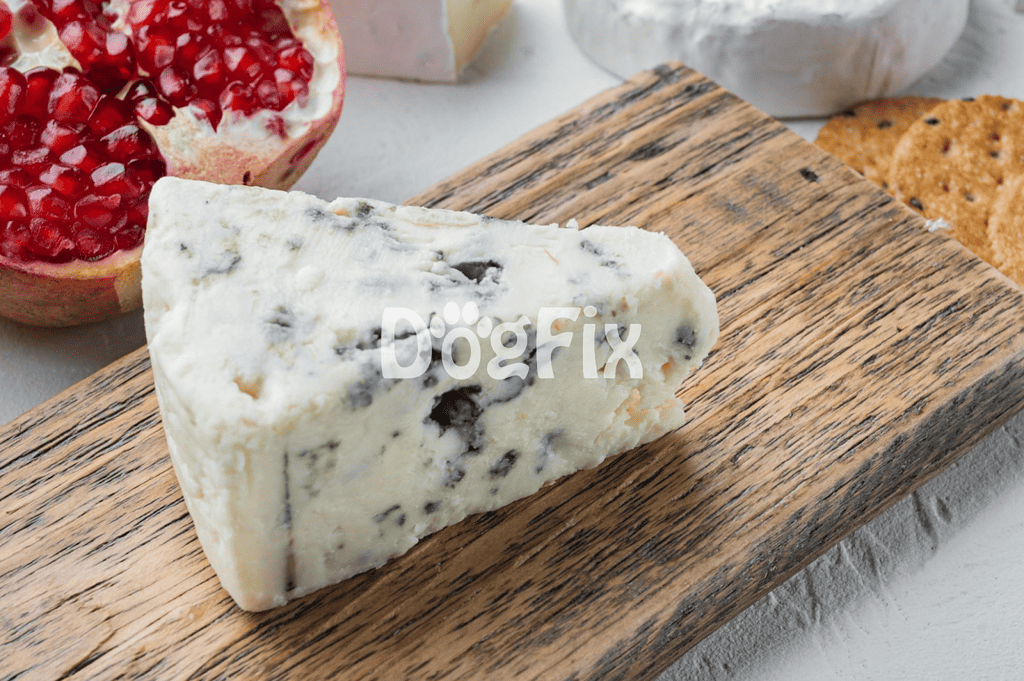
Cheese is mostly safe, but steer clear of blue cheese and Roquefort. They’ve got mold that can give your dog some tough times. As a rule, stick to simple, low-fat cheeses like mozzarella, cheddar, and cottage cheese.
How Much Cheese is Too Much?
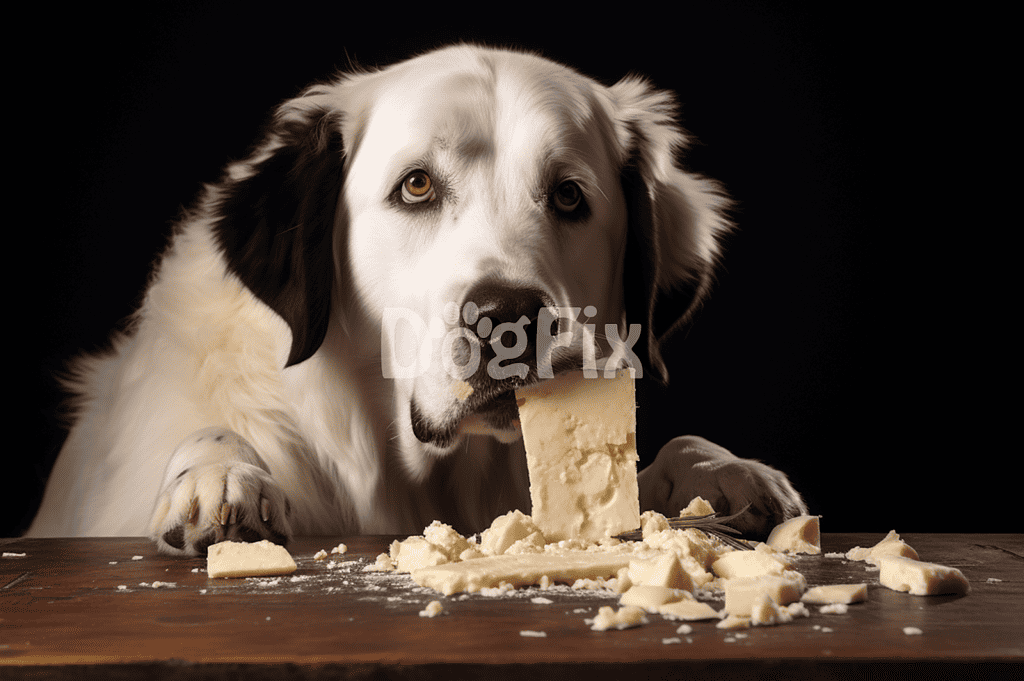
Don’t let cheese become doggy junk food. A little bit goes a long way and keeps upset stomachs at bay. Aim to keep cheese under the 10% line of your dog’s daily calorie tally.
Best-of-the-Best Cheeses for Dogs?
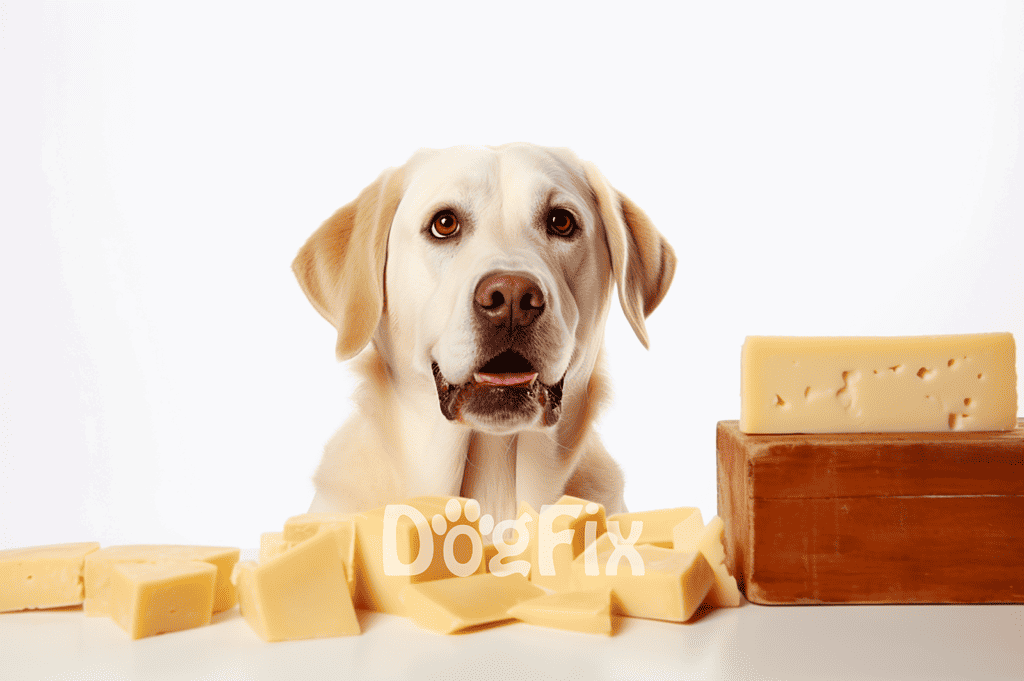
When shopping for doggie cheese, look for low-fat, low-sodium players like mozzarella, cheddar, and cottage cheese. Anything with spices or added flavors could spell trouble. Remember, though, cheese is like the cherry on top, the treat, not the meal itself!
Quick Recap: Dog & Cheese
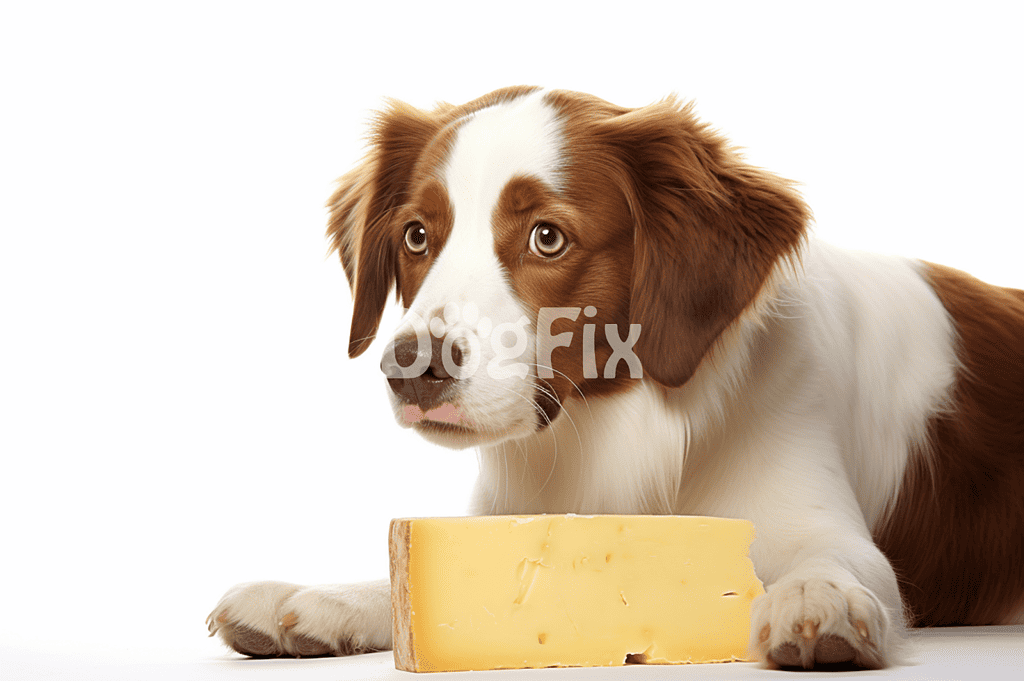
- Cheese for dogs? Sure, just play it cool and don’t overdo it.
- Monitor allergic reactions or dairy intolerances.
- Always run new treats, like cheese, past your vet first.
